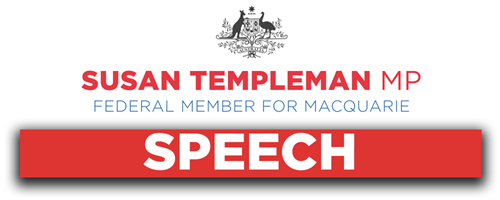 VOCATIONAL TRAINING
VOCATIONAL TRAINING
I have always seen vocational training as something that can have a real transformative effect on people's lives. It can help kids who might not necessarily be terrific at school find a pathway where the skills they have can really be used. That obviously goes for TAFE, but it also applies to the good-quality private training providers. My experience of good-quality private training providers is that they can help businesses really target the skills they need for their staff. But what brings this sector unstuck and what I've seen for nearly the last decade has been a sense that there are always going to be dodgy providers and there's not much you can do about it. The consequence of that has been terrible outcomes for many students. And these are not just young students; sometimes these are older, mature workers who want to reskill or people who come in from overseas in good faith to do courses and find out that they've been sold a dud.
It's really important that we don't accept that there's nothing that can be done about dodgy providers, and that's what the National Vocational Education and Training Regulator Amendment (Strengthening Quality and Integrity in Vocational Education and Training No. 1) Bill 2024 is about. It's saying that there should be standards and, what's more, those standards should be enforced. We are absolutely committed to protecting students and to ensuring the integrity of our vocational education and training schemes in the whole sector as well as the registered training organisations.
This legislation, which I am very pleased to support, is the first tranche to implement our quality and integrity reforms, including by elevating the status of TAFE and vocational education and training and targeting the minority of unscrupulous and non-genuine providers, who tarnish the reputation of the whole sector. For someone who's been in business as I have—I was in business for nearly 25 years before I came to this place—your sector gets a bad name not because of the good operators but because a small number of people do the wrong thing. We can fix that. That is in the best interests of all the honest operators who have integrity and who are genuinely running businesses where they do want to help people change their lives.
I really welcome the measures in this bill, which include things that are probably not that exciting as I run through them but are actually the practical things that will make a difference, For instance, there are things to ensure that ASQA, which is the quality-control body—I know I have certainly referred constituents to ASQA and I have certainly raised issues that have been brought to my attention with ASQA in the past—is now going to have the appropriate powers to take swift action to address integrity risks posed by these non-genuine, completely unscrupulous registered training organisations. It'll be able to apply greater scrutiny to new RTOs and promote a quality vocational education and training sector so that students benefit, the industry itself benefits and businesses who rely on skilled workers benefit. That means the whole community benefits.
Other changes include the ability to do a rapid review of whether something is going wrong but also to stop a new provider from being able to keep adding courses in its first two years of operation so it can be established and there can be a demonstrable basis on which determine that it is meeting the standards that are required. The flexibility that ASQA is going to have will also make a difference. This ensures that ASQA's rules allow it to determine its priorities and to consider and make decisions in relation to applications. This matters because it further enables ASQA to apply the appropriate scrutiny to complex applications or to applications from providers that raise potential integrity issues. So this is about empowering the very body that monitors and enforces the standards, to ensure it can actually do the job that we're asking it to do.
It's worth pointing out that this bill brings together recommendations from various different reviews, including one that happened in 2018. So this isn't new. We've known that this needed to be done, but the previous government just let it drift. It failed miserably to enforce standards and to provide a better framework for the standards. That 2018 review, called the Braithwaite review, was a review of the National Vocational Education and Training Regulator Act 2011. Its recommendations sat, unimplemented by the previous coalition government.
We are a government that identifies a problem and then acts on it, and strengthening the provisions in this bill will enable ASQA to take decisive action, to be able to do what we're asking them to do. As a government, we are encouraging young people and more mature workers to look at vocational education, to see where the skills shortages are and where opportunities for themselves might lie. This is a really key part of it.
Of course, TAFE remains an absolutely central part of what we do. Tens of thousands of students in New South Wales have taken advantage of fee-free TAFE. We have had our first full year of it. There have been tens of thousands in the care sector. The last figures that I pulled out went up to the last financial year, and there were 20,700 care sector workers, 6,400 technical and digital students, 5,800 construction students and 5,200 agriculture students going through fee-free TAFE—and they are figures that go to the last financial year. There have been a lot more in the second half of last year and, obviously, in this new TAFE year.
I would really encourage people: if you want to skill up, check out fee-free TAFE. That is going to provide a pathway to address the skills issues that we have in this nation.


